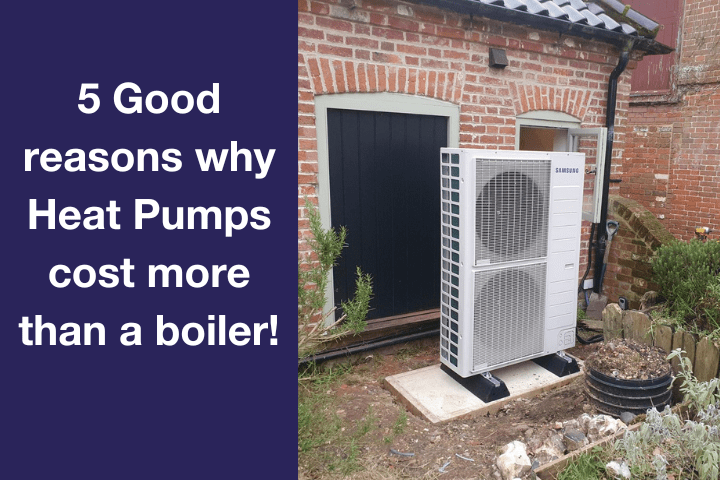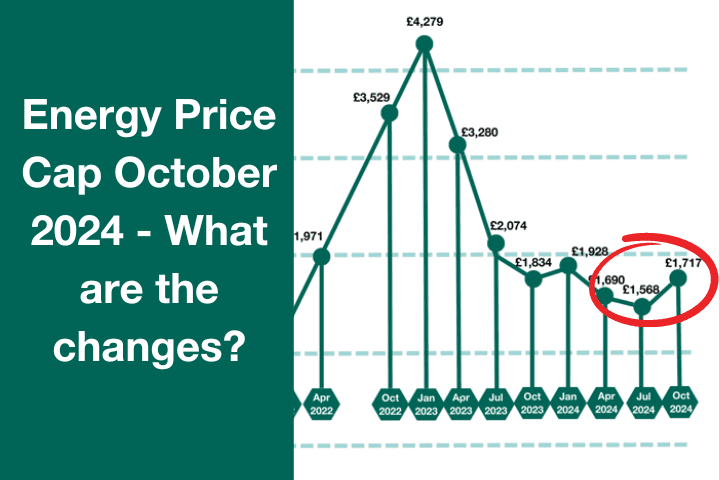How many solar panels do I need? 8 key things you must know

With the increasing need for us to turn to renewable energy sources and reduce our carbon footprint, solar panels have become an attractive option for home and business owners.
Solar panels help to lower energy bills and contribute to a sustainable future, but a common question is “How many solar panels do I need?”
The answer is – it’s not a one-size-fits-all process. Several variables come into play, but it helpful to understand what these factors are.
This comprehensive guide will help you work out how many solar panels your home needs – but remember that it is a guide, an exact confirmed number will require the help of a renewable energy expert.
Short on time? You can use our solar panel calculator to give you a rough guide number.
Table of Contents
1. Understanding how a solar panel works
Before we delve deep into the specifics of how many solar panels you might need, it’s useful to understand how solar panels work.
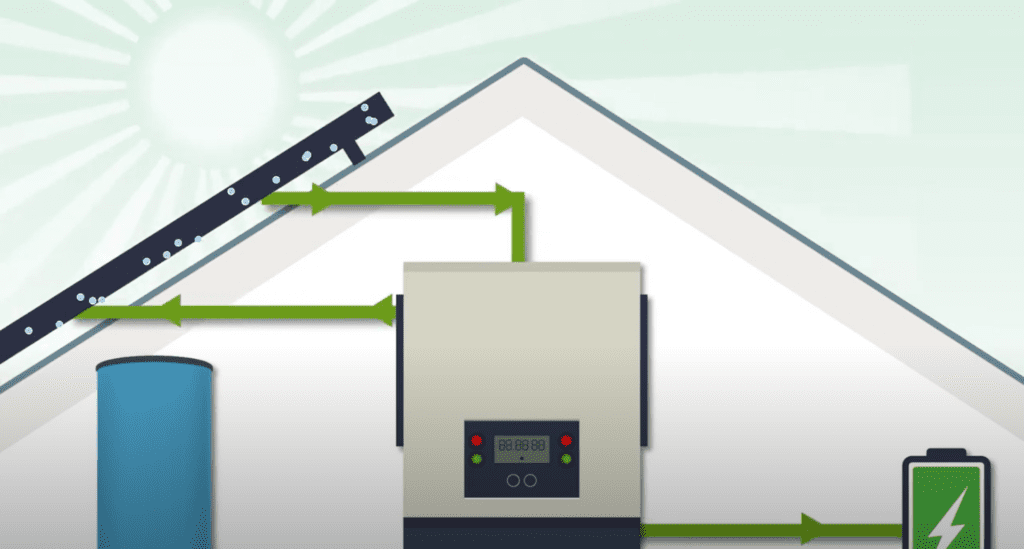
Solar panels, also known as photovoltaic (PV) panels, are installed on the outside of your roof, where they can capture sunlight directly. A south facing roof will attract the most solar gain throughout the year, but a roof facing east or west would be also be suitable for an installation.
The panels generate direct current (DC) electricity from the sun’s energy.
An inverter inside the building is used to convert the DC electricity into alternating current (AC), which is the type of electricity used in most households.
The AC electricity produced by the solar panels can then power your home’s electrical appliances, lighting, and equipment, reducing your dependence on the national grid.
2. Your Energy Consumption
One of the most important factors is your energy consumption. The more energy your household uses, the more solar panels you will need to meet those demands.
This information can be found on your electricity bills, which typically include the monthly or annual energy consumption. You could also use your meter readings.
If you receive an energy bill monthly, just take the total kWh consumption and multiply by 12 to estimate your annual usage.
| House Size | Annual Consumption | Consumption profile | Number of solar panels (405w) |
| Flat/1 bedroom house | <2000kWh | Low | 2 – 4 |
| 3 bedroom house | 2000 – 4000kWh | Low – Medium | 4 – 6 |
| 4 or 5 bedroom house | 4000 – 6000kWh | Medium | 7 – 9 |
| 5+ bedroom house | 6000 – 8000kWh | Medium – high | 10 – 15 |
3. Location
The amount of sunlight your location receives throughout the year is a critical factor. Solar panels still work on cloudy days, but areas with less sunshine will require more solar panels – if they fit!
For example, Eastbourne is the sunniest place in the UK with an average of 8 hours of sunshine a day in June – so it is likely that less solar panels would be needed.
4. Direction of Roof
The orientation and tilt of your roof can impact the effectiveness of your solar panels. Roofs that face south and have an optimal tilt will capture more sunlight as they are exposed to the most hours of sun.
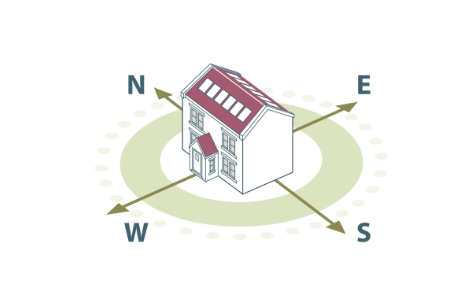
Solar panels can still be fitted on east or west facing roofs, however, they produce 20% to 30% less energy than south facing.
If you have an east or west facing roof, you may need to install more panels to make up the difference, or there is the option to have them installed on both in order to maximise sunlight potential.
In terms of the tilt, you will be limited by the structure of the building. However, a reputable solar panel installer will always make sure that the panels are installed at the best angle possible.
Flat roofs are also not an issue, as there is the option of using pods to support the solar panel.
5. Shading from Trees and Other Obstructions
Trees or buildings near your property causing shade, or any other obstructions, can reduce the efficiency of your solar panels.
Again, additional panels may be required to compensate for any reduced sunlight.
6. Solar Panel Efficiency
The efficiency of your solar panels plays a pretty big role in determining how many you need. Higher efficiency panels can generate more electricity from the same amount of sunlight.
Efficiency is usually measured as a percentage, with modern panels ranging from 15 – 22% efficiency and this is constantly improving.
7. Your Budget
Your budget also plays part in determining the number of solar panels you can install.
Balancing your energy needs with your budget is essential, and you may need to make some compromises to find the right solution.
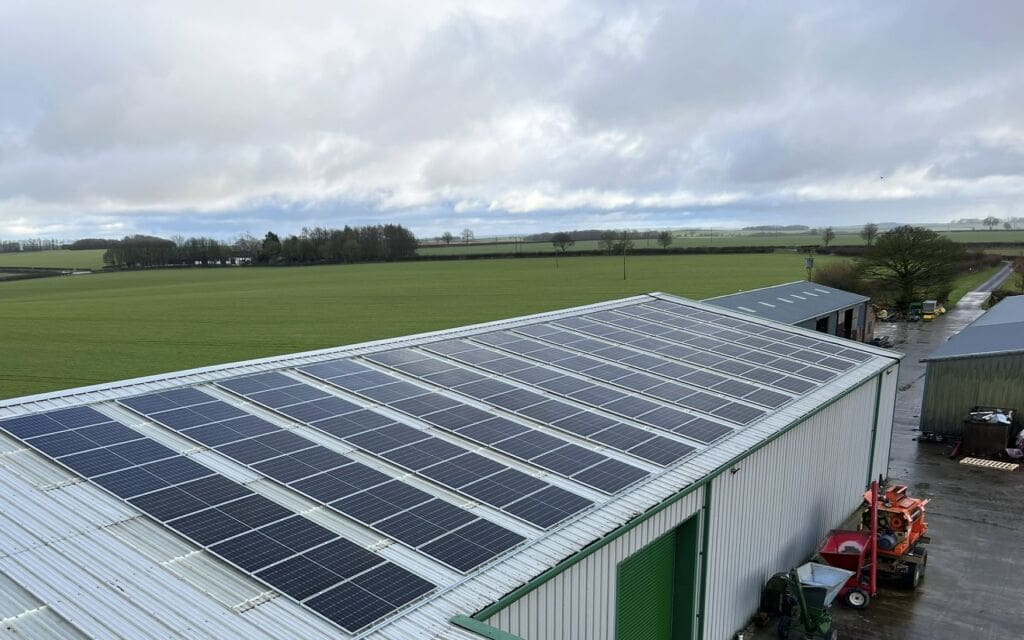
8. Potential Limitations
a. Space on your roof
While new solar panels are more efficient, it is important to bear in mind that if you want to produce a large amount of electricity, you will still be limited by the availability of space on your roof.
You could bypass any issues with roof space and orientation if you have the available land by opting for a ground mount set up.
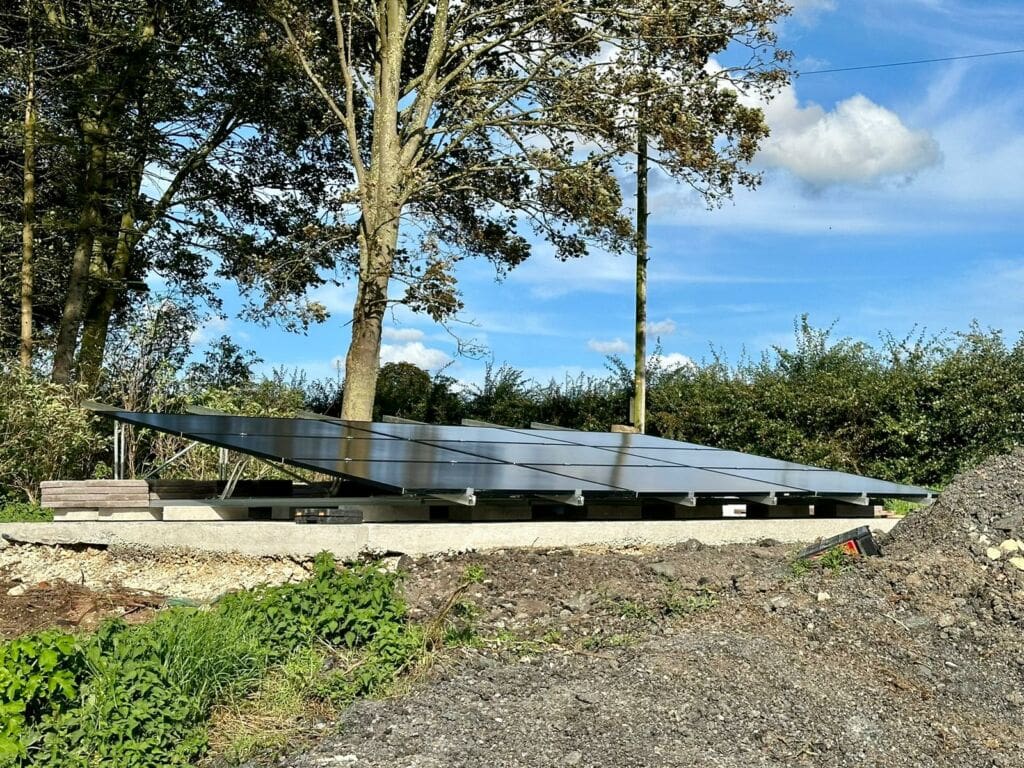
b. Hours of sunshine vs hours of consumption
When the sun is at its highest point in the sky (around midday) there is a greater light intensity and this is when the solar panels are going to produce the most electricity.
If your system does not have a battery, you would need to be consuming the most energy around this time in order to make the most out of your solar panels.
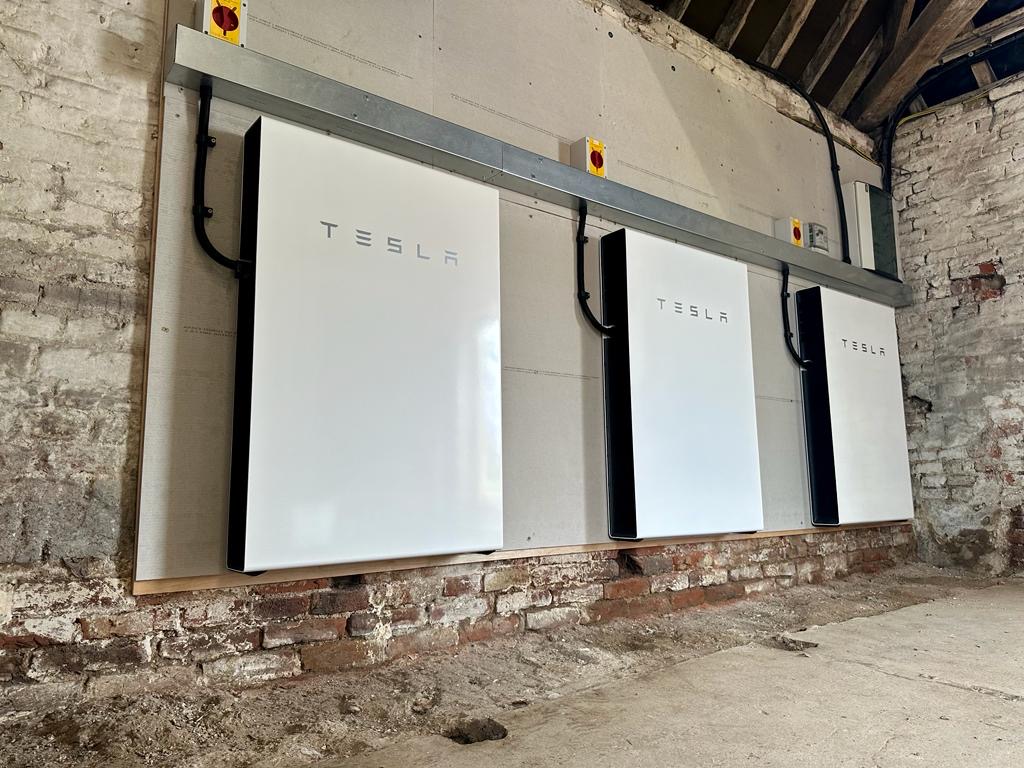
If you are likely to use most of your energy at a different time of day, there are two options to work around this:
Installing a battery – Solar batteries allows you to store excess electricity generated by your solar panels for later use. This energy can be used during the night, or on cloudy days where your panels may not produce as much electricity.
Smart Export Guarantee – You can choose to sell surplus energy back to the national grid, meaning you get paid for every unit of electricity that you feed back and essentially earn money from your solar panels.
Conclusion
Working out how many solar panels you need is a key step in your journey to clean and sustainable energy for your home.
With a careful assessment of your energy consumption and an understanding of the potential location of the panels, you can easily estimate how many panels you might need – but don’t forget, it is always best to consult with a professional solar panel installer who can provide tailored recommendations based on your unique circumstances
Investing in solar panels is a long-term commitment that offers a significant payback. As the technology advances and costs decreased, solar energy becomes more accessible and financially viable.
By making the switch to solar power, you can enjoy reduced energy bills, lower your carbon footprint and contribute to a cleaner, more sustainable future. Remember – while this guide is informative, it is essential to consult with a renewable energy expert for a precise assessment of your solar panel needs
Our solar panel calculator can give you a guide number, as well as a rough cost and estimated pay back time.
The team at Green Building Renewables is here to help you through the process of switching to renewable energy, get in touch today!


